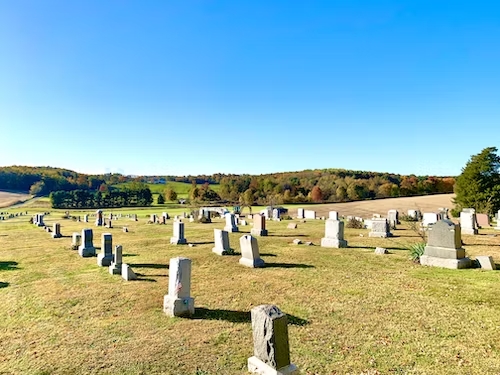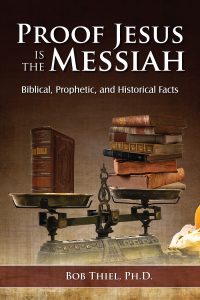
A Shmura Matzo (Unleavened Bread is Used for Passover)
COGwriter
The Christian Passover for 2024 is after sunset April 21st which is the start of Nisan/Abib 14 this year.
April 22nd after sunset, which is when the 15th of Nisan begins, is called the Night to be Observed (watch also The Night to Be Much Observed).
The date of the Christian Passover has been controversial for millenia. We in the Continuing Church of God believe that we follow Jesus’ example, as well as those of the early faithful Christians, and hence observe it towards the beginning of the 14th of Nisan.
Yet, TPM’s late William Dankenbring (who was once a WCG writer) wrote an article titled: “SEVENTEEN PROOFS Why Passover Should Be Observed on Nisan 15!”
But, of course, although many Jews did keep the 15th (and still do, though some keep the 14th), that is not when Jesus observed the Passover, nor when the original Passover was observed.
The Bible is clear that the 14th of the month is God’s Passover and the 15th day begins a different time:
5 On the fourteenth day of the first month at twilight is the LORD’s Passover. 6 And on the fifteenth day of the same month is the Feast of Unleavened Bread to the LORD (Leviticus 23:5-6, NKJV).
5 “The fourteenth day of the first month, at twilight, is the Passover of Yahweh (Leviticus 23:5, NJB)
5 In the fourteenth day of the first month at even is the Lord’s passover. (Leviticus 23:5, KJV)
There is only one “twilight” for the 14th and that is right after sunset that BEGINS the day. Thus, the 14th is clearly the day of God’s Passover.
Now, the following is the first place in the Bible that the calendar date of the Passover is specifically mentioned:
Speak to all the congregation of Israel, saying: ‘On the tenth day of this month every man shall take for himself a lamb, according to the house of his father, a lamb for a household. And if the household is too small for the lamb, let him and his neighbor next to his house take it according to the number of the persons; according to each man’s need you shall make your count for the lamb. Your lamb shall be without blemish, a male of the first year. You may take it from the sheep or from the goats. Now you shall keep it until the fourteenth day of the same month. Then the whole assembly of the congregation of Israel shall kill it at twilight. And they shall take some of the blood and put it on the two doorposts and on the lintel of the houses where they eat it. Then they shall eat the flesh on that night; roasted in fire, with unleavened bread and with bitter herbs they shall eat it. Do not eat it raw, nor boiled at all with water, but roasted in fire–its head with its legs and its entrails. You shall let none of it remain until morning, and what remains of it until morning you shall burn with fire. And thus you shall eat it: with a belt on your waist, your sandals on your feet, and your staff in your hand. So you shall eat it in haste. It is the LORD’s Passover (Exodus 12:3-11, NKJV).
6 And you shall keep it until the fourteenth day of this month: and the whole multitude of the children of Israel shall sacrifice it in the evening. (Exodus 12:6, Douay-Rheims)
Notice that the fourteenth day of the month is the Lord’s Passover and that is when the lambs were sacrificed. It should be noted that the Douay-Rheims is a Catholic approved translation of scripture, yet they will observe March 31st as Passover, while calling it Easter in the English languages and switching its emphasis away from the biblical teachings on Passover.
But getting back to TPM, interestingly it agrees with the Old Testament as it admits that the New Testament teaches that the Passover lambs are to be sacrificed on the 14th of Nisan:
According to the gospel of John, Nisan 14 is the very day the Passover lambs would have been slain – the day before the high holy day of the first day of Unleavened Bread (John 19:14-16)…Christ Himself died, as OUR “Passover lamb…Paul himself declares, “For indeed, Christ our PASSOVER, was sacrificed for us” (I Cor.5:7). This implies that He was sacrificed at the appointed time when ALL the Passover lambs were being killed, which was on the afternoon of Nisan 14” (I Cor.5:7) (Dankenbring W.F. What Year and Date Was Christ Crucified? http://www.triumphpro.com/passover_nisan_new_moons_29_31_ad.htm 6/20/06).
Hence, although I would have selected a different proof text, there is agreement that the Passover lambs were sacrificed sometime on the 14th of Nisan. Some would have been sacrificed at twilight and others apparently later. Jesus kept the Passover at twilight and was killed later on the 14th.
Who does the Bible say was the Lamb of God? Well, Jesus the Christ of course:
The next day John saw Jesus coming toward him, and said, “Behold! The Lamb of God who takes away the sin of the world! (John 1:29).
And was Jesus the Passover lamb sacrificed for us?
For indeed Christ, our Passover, was sacrificed for us (1 Corinthians 5:7).
Thus, according to the Bible (and even TPM), the Passover lambs were sacrificed on the 14th of Nisan. Jesus was the Lamb of God who was the Passover sacrificed for us. Thus, if one agrees with TPM that the New Testament teaches that the Passover lambs were sacrificed on the 14th of Nisan, then one should agree that the New Testament Passover should also be observed on the 14th of Nisan. TPM however, seems to feel that the Passover is to be observed the night after the lambs are killed.
What About Jewish Practices?
TPM claimed that the day that Jews NOW commonly observe is proof that Passover for Christians must be the 15th of Nisan.
Here is some of its statements along that line:
Proof No. 5 — the Day the Jews Observe
The apostle Paul wrote, “What advantage then hath the Jew? or what profit is there of circumcision? MUCH EVERY WAY,” he answered his own question. He went on: “chiefly, because that unto THEM were committed the ORACLES OF GOD” (Romans 3:1-2). God entrusted His Word and by extension His Holy Days and revelations TO THE JEWS for them to be preserved throughout the generations and centuries and millennia. Were it not for the Jews’ faithfulness to this command, we would not even possess the entire Old Testament of the Bible, where the laws and commandments of God are all recorded!
The Jews all understand the truth about Passover, and all orthodox Jews to this very day, and all Judaism as a whole, observes Passover on NISAN 15, just as their forefathers and ancestors have done, century after century after century! (Dankenbring WF. Come out of Babylon, My People! SEVENTEEN PROOFS Why PASSOVER Should Be Observed on Nisan 15! http://www.triumphpro.com/passover17.htm 6/21/06).
The problem is that most Jews have not been faithful to the original date. And while the Jews know which day is the fourteenth of Nisan, the fact that they added additional dates for the Passover (and some of the other Holy Days for those of the diaspora) does not make them the judge of how or when to observe the Holy Days (this is to be done by the “body of Christ”, Colossians 2:17, AFV). One of the reasons they did this is that they confused the meal they take on the 15th (the “night to be much observed,” Exodus 12:42 KJV, see also The Night to Be Observed) with the Passover celebration (many Jews still have meals on both nights, though it is not clear that they still know why).
Here is proof from the Jewish Encyclopedia that the Jews should realize that Passover is on the 14th:
Lev. xxiii., however, seems to distinguish between Passover, which is set for the fourteenth day of the month, and  (the Festival of Unleavened Bread; ἑορτή τῶν ἀζύμων, Luke xxii. 1; Josephus, “B. J.” ii. 1, § 3), appointed for the fifteenth day. Passover. (Jewish Encyclopedia of 1906)
(the Festival of Unleavened Bread; ἑορτή τῶν ἀζύμων, Luke xxii. 1; Josephus, “B. J.” ii. 1, § 3), appointed for the fifteenth day. Passover. (Jewish Encyclopedia of 1906)
Here are two other explanations as to why there has been confusion amongst Jews:
Two Passovers
The gospels appear to say that the Messiah ate a Passover meal with the twelve on the evening beginning Nisan 14, and John appears to say Jews were having their Passover meal one day later. There are different theories to explain this.
1. The Sadducees and Pharisees disagreed on the day of Passover. The Sadducees (more conservative group) believed the Feasts of Passover and Unleavened Bread were separate feast days. They held Passover on the fourteenth as God decreed in Exodus, Leviticus, and Numbers. Those of the majority opinion, including the Pharisees, held Passover on the fifteenth. Jesus may have been following both dates by having Passover with the disciples on the fourteenth and becoming the Passover lamb on the fifteenth.
2. Thousands of people would come to Jerusalem to have their lambs ritually slain in the Temple. If they only had one day in which to prepare for the Passover, it would have been extremely difficult to have slaughtered all the lambs brought in to be sacrificed. Therefore, they worked on two different time scales. The northern part of the country went with the old way of dating (starting from morning and going to the following morning). The southern part of the country followed the official dating method (from evening to evening). Thus, there were two times when lambs were being killed in the Temple for sacrifice (Sampson R & Pierce L. A Family Guide to the Biblical Holidays. Heart of Wisdom Publishing June 2001, p. 112)
Thus, for whatever reason, the Jews got a little bit confused. With some keeping the correct date–the same date that Jesus kept (and He would have known which date was biblically correct). Many forget that Jesus condemned the Jews for relying on non-biblical traditions above the Bible (e.g. Mark 7:9-13).
What Happened Before Passover?
TPM argued that the last meal that Jesus ate before His crucifixion was before the Passover, thus was not a Passover meal:
What, Then, Was the “Last Supper”?…
In fact, the apostle John himself writes, “Now BEFORE the Feast of the Passover, when Jesus knew that His hour had come . . . and supper being ended, the devil having already put it in the heart of Judas Iscariot . . . to betray Him, Jesus, knowing that the Father had given all things into His hands, and that He had come from God and was going to God, rose from SUPPER [the “Last Supper”], and laid aside His garments, took a towel and girded Himself” (John 13:1-4). He then began to wash the disciples’ feet (vs.5-12).
John plainly calls this mean a “SUPPER” – not the “Passover” meal! He plainly says it occurred “BEFORE” the upcoming Feast of the Passover (verse 1). There is NO WAY that meal could have been the “Passover,” as so many seem to assume! (Dankenbring W.F. What Year and Date Was Christ Crucified? http://www.triumphpro.com/passover_nisan_new_moons_29_31_ad.htm 6/20/06).
Now plainly John says this final “supper” was “before” the Passover! Therefore it could not have been the “Passover”!…
Therefore, when we understand it, there is absolutely NO PROOF that the “last supper” was actually the “Passover” itself, as so many people assume. (Dankenbring WF. John 19:14 — What Do You Mean, “About the Sixth Hour”? http://www.triumphpro.com/john_19,_sixth_hour.htm 6/23/06).
Jesus sent Peter and John telling them, “Go and prepare the Passover for us, that we may eat.” In context, then, He is telling them to “Prepare for the coming Passover Feast” – all the seven days of “Passover” (verse 1). They had to prepare – that is, obtain “unleavened bread,” and all the things necessary for observing the Passover for seven days. That is why this day was called a day of preparation.’ Jesus was telling His disciples to ‘PREPARE’ for the up-coming Passover – that is, to GET READY and make preparations. He did not say the meal that very night would be the Passover! Luke plainly calls it “supper” – not “Passover” – as we shall see! (Dankenbring WF. Was the Lord’s Supper Really the Passover? Prophecy Flash, March-April 2010.)
Contrary to what TPM wrote above, Jesus DOES call this meal the Passover in Matthew, Mark, and Luke:
18 And He said, “Go into the city to a certain man, and say to him, ‘The Teacher says, “My time is at hand; I will keep the Passover at your house with My disciples.”‘”
19 So the disciples did as Jesus had directed them; and they prepared the Passover.
20 When evening had come, He sat down with the twelve. 21 Now as they were eating (Matthew 26:18-21).
14 Wherever he goes in, say to the master of the house, ‘The Teacher says, “Where is the guest room in which I may eat the Passover with My disciples?”‘ 15 Then he will show you a large upper room, furnished and prepared; there make ready for us.”
16 So His disciples went out, and came into the city, and found it just as He had said to them; and they prepared the Passover.
17 In the evening He came with the twelve. 18 Now as they sat and ate, Jesus said, “Assuredly, I say to you, one of you who eats with Me will betray Me.” (Mark 14:14-18)
15 With fervent desire I have desired to eat this Passover with you before I suffer..(Luke 22:15).
Also, contrary to what TPM wrote above, TPM’s contention of what John plainly says is in error. Additionally, TPM’s quoting of those passages gives the appearance that certain events were absolutely together when the reading of the entire context shows that this is NOT the case.
A review of the Greek in John 13:1 shows that before the Passover that Jesus knew His hour had come and that He loved His disciples. It does not say that He had SUPPER before the Passover.
Below are two literal translations, the first of which also shows the relevant Strong’s number of each of the Greek words:
4253 1161 3588 1859 3588 3957 1492 3588
before Now the feast of the passover, when knew the
2424 3754 2064 846 3588 5610 2443
Jesus that was come his the hour that
3327 1537 3588 2889 5127 4314 3588
he should depart out of the world this unto the
3962 25 3588 9999 2398 3588 1722 3588
Father, having loved which were his own the in the
2889 1519 9999 5056. 25 846
world, unto the end. he loved them. (Interlinear Transliterated Bible. Copyright (c) 1994 by Biblesoft).
And before the feast of the Passover, Jesus knowing that His hour had come that He should move from this world to the Father, loving (His) own in the world, He loved them to (the) end (Green J.P. Interlinear Greek-English New Testament, 3rd ed. Baker Books, Grand Rapids, Mi, 1996).
(Note: I added the term “the” in the four places where J. Green left it blank.)
Thus to teach that John 13 plainly states that supper was before the Passover is not supported by the main verse (13:1). Secondarily, the word supper is used in the next verse. The Greek word used is transliterated as deipnon, a term normally referring to the evening meal:
deipnon (dipe’-non)…dinner, i.e. the chief meal (usually in the evening) (Biblesoft’s New Exhaustive Strong’s Numbers and Concordance with Expanded Greek-Hebrew Dictionary. Copyright (c) 1994, Biblesoft and International Bible Translators, Inc.)
A dinner meal was normally in late afternoon or the evening (and the evening begins at/after twilight). Jesus’ acts immediately after the meal was completed did occur on the Tuesday evening portion of the 14th of Nisan. They were NOT on the 13th as some have suggested (this is also confirmed by 1 Corinthians 11:23 which will be quoted later).
Thus, John 13 is clearly supportive of a 14th Passover.
Furthermore, the real question is how did God view this particular meal, or at least the symbolism after the meal? Notice what Jesus told His disciples about this meal:
And He sent Peter and John, saying, “Go and prepare the Passover for us, that we may eat.” So they said to Him, “Where do You want us to prepare?” And He said to them, “Behold, when you have entered the city, a man will meet you carrying a pitcher of water; follow him into the house which he enters. Then you shall say to the master of the house, ‘The Teacher says to you, “Where is the guest room in which I may eat the Passover with My disciples?” ‘ Then he will show you a large, furnished upper room; there make ready.” So they went and found it just as He had said to them, and they prepared the Passover. When the hour had come, He sat down, and the twelve apostles with Him. Then He said to them, “With fervent desire I have desired to eat this Passover with you before I suffer; for I say to you, I will no longer eat of it until it is fulfilled in the kingdom of God.” Then He took the cup, and gave thanks, and said, “Take this and divide it among yourselves; for I say to you, I will not drink of the fruit of the vine until the kingdom of God comes.” And He took bread, gave thanks and broke it, and gave it to them, saying, “This is My body which is given for you; do this in remembrance of Me.”(Luke 22:8-19).
Thus, it is clear that on that evening of the 14th, Jesus and His disciples observed the Passover. TPM may wish to assert that the meal was eaten before sunset, but since the passover lambs were not killed until the twilight on the 14th (Exodus 12:6) and the verse specifically says that Jesus did not sit down until the hour had come, the fact is that this is the Passover according to Jesus. This is when He implemented the footwashing, the wine, and the bread–it should be noted that Paul clearly teaches that this was done at night (1 Corinthians 11:23). And we are to do this in remembrance of Jesus, and since Passover is an annual 14th of Nisan event (Numbers 9:2-5), this means on the 14th shortly after sunset.
And that is what we in the Continuing Church of God (as well as most in CG7 and other COG groups) do.
The following chart may be of assistance to many who wonder about the sequence of events and dates in the Book of Exodus:
| Action |
Time |
Scripture |
| Take a lamb |
10th of Abib |
Exodus 12:3 |
| Kill lamb |
After sunset 14th of Abib |
Exodus 12:6 |
| Put blood on doorposts |
Later evening 14th of Abib |
Exodus 12:7 |
| Striking of Egyptian firstborn |
About midnight 14th of Abib |
Exodus 12:29 |
| Israelites allowed out of homes |
Morning of 14th of Abib |
Exodus 12:22 |
| Israelites grab dough and clothes |
Daytime of 14th of Abib |
Exodus 12:34 |
| Israelites plunder Egyptian wealth |
Daytime 14th of Abib |
Exodus 12:36 |
| Israelites gather/organize in Rameses |
Daytime 14th of Abib |
cf. Exodus 13:18 |
| Israelites leave Rameses |
Evening/Night of 15th of Abib |
Numbers 33:3 |
| Keeping the Days of Unleavened Bread |
Sunset 15th to sunset 21st of Abib |
Exodus 12:17-19
Leviticus 23:6 |
TPM Followed Error
Astoundingly, TPM stated that the early church kept the 15th based on faulty, inaccurate, information. Look at the following:
Proof No. 16 — Proof of the Early Church
When did the early Christian Church, in the days of the first and second centuries, observe the Passover? What does the record of Church history say? Samuel Bacchiocchi, in his scholarly book From Sabbath to Sunday.- A Historical Investigation of the Rise of Sunday Observance in Early Christianity, wrote:
“Moreover we know from the Quartodeciman’s sources (i.e. those who kept Passover on Nisan 14 ACCORDING TO THE JEWISH RECKONING), which apparently represent a DIRECT CONTINUATION OF THE PRIMITIVE CHURCH, that the PASCHAL FEAST WAS INDEED OBSERVED BY CHRISTIANS. Its celebration … occurred … as well stated by J. Jeremias, ‘at the SAME TIME AS THE JEWISH PASSOVER, that is, on the NIGHT OF THE 15TH OF NISAN. . .” (page 81).
Bacchiocchi writes, in plain language, later on in his monumental classic work:
“. . . Epiphanius (ca. A.D. 315-403) suggests that UNTIL A.D. 135 Christians EVERYWHERE observed Passover ON THE JEWISH DATE, namely, ON NISAN 15, irrespective of the day of the week” (ibid.).
This is plain, incontrovertible PROOF that both the Jews, and early Christians, observed the Passover — and they both did so ON NISAN 15 — NOT at the beginning of Nisan 14, as some churches claim should be done, today! Nor did they substitute “Easter” Sunday in its place, as later paganized Gentiles began to do, especially after the Council of Nicea in 325 A.D…
Now you know the truth. What are you going to do about it? (Dankenbring WF. Come out of Babylon, My People! SEVENTEEN PROOFS Why PASSOVER Should Be Observed on Nisan 15! http://www.triumphpro.com/passover17.htm accessed in 2005 then later on 6/21/06).
This is one of the most ridiculous proofs that TPM used.
As far as what to do about it, I personally took several steps. First, I looked up the actual writing of Epiphanius to see if he wrote that W. Dankenbring said he wrote. When it was clear that citation was wrong, in the Spring of 2005, I even wrote the author of the above (William Dankenbring) to inform him that Dr. Bacchiocchi erred on page 81 of that book (and I did inform Dr. Bacchiocchi also), but that Dr. Bacchiocchi’s book has the information correct on page 161. Yet, TPM would not correct the above error.
Thus when I confronted W.F. Dankenbring with the proof, he refused it. I offered to FAX him the relevant page from Epiphanius if he would provide me his FAX number, but he failed to provide it and later died. How can anyone rely on the writings of one who is relying on a secondary source he has been told is wrong who also refuses to even look at the primary source? He was unwilling to look at the truth or correct his error since a year later, he still had the wrong information up.
He did NOT properly act upon the truth.
That being said, there was some controversy associated with the date of Passover that began in the second century. Some wanted the original date of the 14th, some wanted Sunday instead, while some others wanted the 15th.
Around 155 A.D. Polycarp of Smyrna went to Rome to deal with various heretics and he tried to persuade the Roman bishop Anicetus not to change Passover to an Easter Sunday holiday. Irenaeus records this about Passover:
And when the blessed Polycarp was sojourning in Rome in the time of Anicetus, although a slight controversy had arisen among them as to certain other points…For neither could Anicetus persuade Polycarp to forego the observance [in his own way], inasmuch as these things had been always observed by John the disciple of our Lord, and by other apostles with whom he had been conversant; nor, on the other hand, could Polycarp succeed in persuading Anicetus to keep [the observance in his way], for he maintained that he was bound to adhere to the usage of the presbyters who preceded him. And in this state of affairs they held fellowship with each other; and Anicetus conceded to Polycarp in the Church the celebration of the Eucharist, by way of showing him respect (Irenaeus. FRAGMENTS FROM THE LOST WRITINGS OF IRENAEUS. Translated by Alexander Roberts and James Donaldson. Excerpted from Volume I of The Ante-Nicene Fathers (Alexander Roberts and James Donaldson, editors); American Edition copyright © 1885. Electronic version copyright © 1997 by New Advent, Inc).
For it was in Rome and Greek Jerusalem that the habit of changing the date of Passover began.
It may be of interest to note “And in Rome … Anicetus assumed the leadership of the Christians there … But Justin was especially prominent in those days” (Eusebius Church History. Book IV, Chapter 11). This may indicate that the heretic Justin Martyr influenced Anicetus so much that he would not agree to only observe the Nisan 14 Passover (Justin opposed various biblical practices).
However, those in Asia Minor, did not change the date in the second century.
Apollinaris was a church leader of Hierapolis in Phrygia of Asia Minor. Around 180 A.D. he wrote (possibly because some wanted Sunday or others the 15th):
The fourteenth day, the true Passover of the Lord; the great sacrifice, the Son of God instead of the lamb, who was bound, who bound the strong, and who was judged, though Judge of living and dead, and who was delivered into the hands of sinners to be crucified, who was lifted up on the horns of the unicorn, and who was pierced in His holy side, who poured forth from His side the two purifying elements, water and blood, word and spirit, and who was buried on the day of the passover, the stone being placed upon the tomb (Apollinaris. From the Book Concerning Passover. Translated by Alexander Roberts and James Donaldson. Excerpted from Volume I of The Ante-Nicene Fathers. Alexander Roberts and James Donaldson, editors; American Edition copyright © 1885. Copyright © 2001 Peter Kirby).
One Anglican scholar noted:
…there is no doubt that Apollinarius was a Quartodeciman…Those who kept Passover in the evening understood it to be a repetition of the Lord’s Supper (Stewart-Sykes A. Melito of Sardis On Pascha. St. Vladimir’s Seminary Press, Crestwood (NY), 2001, p. 81).
Melito of Sardis of Asia Minor, probably by 180 A.D., wrote the following on Passover:
When Servilius Paulus was proconsul of Asia, at the time that Sagaris suffered martyrdom, there arose a great controversy at Laodicea concerning the time of the celebration of the Passover, which on that occasion had happened to fall at the proper season (Melito. Translation by Roberts and Donaldson. On the passover. Online version copyright © 2001 Peter Kirby. http://www.earlychristianwritings.com/text/melito.html 11/18/06).
Click here for a complete version of The Homily On the Passover by Melito. If your church does not teach you about the Passover and why you should observe it, your church simply is not following the teachings and practices of Early Christianity. A decade or so after Melito’s death, Roman Bishop Victor tried to enforce the preferred Roman Sunday date for Passover and stop Christians from following the biblical date of Nisan 14.
The Greco-Roman Catholic writer Eusebius recorded that Polycrates of Ephesus, around 195 A.D. wrote the following to the Roman Bishop Victor who, as the previous writing showed, wanted all who professed Christ to change Passover from the 14th of Nisan to Sunday:
We observe the exact day; neither adding, nor taking away. For in Asia also great lights have fallen asleep, which shall rise again on the day of the Lord’s coming, when he shall come with glory from heaven, and shall seek out all the saints. Among these are Philip, one of the twelve apostles, who fell asleep in Hierapolis; and his two aged virgin daughters, and another daughter, who lived in the Holy Spirit and now rests at Ephesus; and, moreover, John, who was both a witness and a teacher, who reclined upon the bosom of the Lord, and, being a priest, wore the sacerdotal plate. He fell asleep at Ephesus. And Polycarp in Smyrna, who was a bishop and martyr; and Thraseas, bishop and martyr from Eumenia, who fell asleep in Smyrna. Why need I mention the bishop and martyr Sagaris who fell asleep in Laodicea, or the blessed Papirius, or Melito, the Eunuch who lived altogether in the Holy Spirit, and who lies in Sardis, awaiting the episcopate from heaven, when he shall rise from the dead? All these observed the fourteenth day of the passover according to the Gospel, deviating in no respect, but following the rule of faith. And I also, Polycrates, the least of you all, do according to the tradition of my relatives, some of whom I have closely followed. For seven of my relatives were bishops; and I am the eighth. And my relatives always observed the day when the people put away the leaven. I, therefore, brethren, who have lived sixty-five years in the Lord, and have met with the brethren throughout the world, and have gone through every Holy Scripture, am not affrighted by terrifying words. For those greater than I have said ‘ We ought to obey God rather than man’ (Eusebius. Church History, Book V, Chapter 24. Translated by Arthur Cushman McGiffert. Excerpted from Nicene and Post-Nicene Fathers, Series Two, Volume 1. Edited by Philip Schaff and Henry Wace. American Edition, 1890. Online Edition Copyright © 2004 by K. Knight).
Notice that Polycrates said that he and the other early church leaders (like the Apostles Philip and John, and their successors like Polycarp, Thraseas, Sagaris, Papirius, Melito) would not deviate from the Bible, and that they knew the Bible taught them to keep the Passover on the correct date, and not on a Sunday (unless that was the correct date, as it was last year). Also notice that they always observed the day when the people put away the leaven. Polycrates also reminded the Roman bishop that true followers of Christ “obey God rather than men”.
Hence it is clear that throughout the second century, the churches in Asia Minor continued to observe the Passover on the 14th of Nisan (and for doing so, they were labeled as Quartodecimans, fourteenthers, by the Romans), unlike the Romans, and they refused to accept the authority of any Roman bishop over scripture.
While many English speaking people are unaware, the date called Easter in English is supposed to be a change of the date for Passover. For one of several proofs, notice that the Catholic Priest Bede (also known as “the Venerable Bede”) recorded from a Catholic Abbot named Wilfrid who was trying to justify near the beginning of the eighth century why it was acceptable to not follow the Apostle John’s practices regarding Passover and change the 14th to an Easter Sunday:
Far be it from me to charge John with foolishness: he literally observed the decrees of the Mosaic law when the Church was still Jewish in many respects, at a time when the apostles were unable to bring a sudden end to that law which God ordained…So John, in accordance with the custom of the law, began the celebration of Easter Day in the evening of the fourteenth day of the first month, regardless of whether it fell on the sabbath or any other day (Bede (Monk). Edited by Judith McClure and Roger Collins. The Ecclesiastical History of the English People. Oxford University Press, NY, 1999).
Many languages use a term meaning Passover, like pascha, and hence somewhat realize that they are supposed to be observing Passover, though they observe an event more resembling ancient Easter.
Notice what the Roman Catholic priest and historian Bellarmino Bagatti wrote related to the fourth century:
…the inhabitants of Syria, of Cilcia and of Mesopotamia were still celebrating Easter {Passover} with the Jews…
(Bagatti, Bellarmino. Translated by Eugene Hoade. The Church from the Gentiles in Palestine. Nihil obstat: Ignatius Mancini, 1 Februari 1970. Imprimi potest: Herminius Roncari, 26 Februari 1970. Imprimatur: +Albertus Gori, die 28 Februarii 1970. Franciscan Printing Press, Jerusalem, 1971, pp. 47-48).
The scholars of the Greco-Roman faiths all realize that what is celebrated now and called “Easter” was supposed to be an observation of Passover.
Why the change of date?
The respected Protestant scholar J.B. Lightfoot specifically wrote:
the Churches of Asia Minor which regulated their Easter festival by the Jewish passover without regard to the day of the week, but with those of Rome and Alexandria and Gaul which observed another rule; thus avoiding even the semblance of Judaism (Lightfoot, Joseph Barber. Saint Paul’s Epistle to the Galatians. Macmillan and co., limited, 1910. Original from the University of California. Digitized Oct 16, 2007, p. 331).
Yet, no early Christian (or even Catholic) called Passover “Easter.” Nearly all realized that Christians were supposed to observe Passover. And the truly faithful kept it on the 14th of Nisan, not the 15th and not on a Sunday that was not the 14th.
In the second century, it was reported that Passover was an annual event and that it was held at night (Epistula Apostolorum, Chapter 15 as shown in Elliot JK. The apocryphal New Testament: a collection of apocryphal Christian literature in an English translation, reprint edition. Oxford University Press, 2005, p. 565). The Eastern Orthodox realize that this is so, as one of their priests has written:
Pascha is the feast of universal redemption. Our earliest sources for the annual celebration of the Christian Pascha come to us from the second century…The feast, however, must have originated in the apostolic period…According to the earliest documents, Pascha is described as a nocturnal celebration…(Calivas, Alkiviadis C. The Origins of Pascha and Great Week – Part I. Holy Cross Orthodox Press, 1992. Greek Orthodox Archdiocese of America, http://www.goarch.org/ourfaith/ourfaith8504 viewed 11/04/2011)
Yet, modern “Easter” practices are in the early morning, not in the evening, and do not have the practices that early Christians had. Nor did they observe Lent.
Notice what a respected Protestant scholar reported about the second century:
The most important in this festival was the passover day, the 14th of Nisan…In it they ate unleavened bread, probably like the Jews, eight days through…there is no trace of a yearly festival of the resurrection among them…the Christians of Asia Minor appealed in favor of their passover solemnity on the 14th Nisan to John (Gieseler, Johann Karl Ludwig. A Text-book of Church History. Translated by Samuel Davidson, John Winstanley Hull, Mary A. Robinson. Harper & brothers, 1857, Original from the University of Michigan, Digitized Feb 17, 2006, p. 166).
So, like the Apostle John (the last of the original apostles to die), the early faithful Christians observed Passover and the Days of Unleavened Bread. And they did this on the 14th after sunset.
The Christian Passover for 2024 is April 21st, after sunset which is when the 14th of Nisan begins. April 22nd after sunset, which is when the 15th of Nisan begins, is called the Night to be Observed (watch also our animation: Night to Be Observed).
Holy Day Calendar Updated
We have had a calendar of the biblical holy days through 2033 for some time.
Here is the portion related to Spring Holy Days:
| Holy Day* |
|
|
|
2024 |
2025 |
2026 |
2027 |
2028 |
2029 |
2030 |
2031 |
2032 |
2033 |
| Passover |
|
|
|
Apr 22 |
Apr 12 |
Apr 1 |
Apr 21 |
Apr
10 |
Mar
30 |
Apr 17 |
Apr 7 |
Mar
26 |
Apr 13 |
| Unleavened Bread |
|
|
|
Apr 23-29 |
Apr 13-19 |
Apr 2-8 |
Apr 22-28 |
Apr
11-17 |
Mar 31-Apr 6 |
Apr 18-24 |
Apr 8-14 |
Mar 27 – Apr 2 |
Apr 14-20 |
| Pentecost |
|
|
|
Jun 16 |
Jun 1 |
May 24 |
Jun
13 |
Jun
4 |
May
20 |
Jun
9 |
Jun
1 |
May
16 |
Jun 5 |
Knowing when the Holy Days are coming does assist with planning–particular on matters of work, school, and travel.
For more dates, here is a link: Holy Day Calendar.
Items of related interest may include:
Keeping Passover and the Days of Unleavened Bread How should Christians keep Passover, especially if they are by themselves. Why does the Church of God not require lambs for Passover? How does one keep the Days of Unleavened Bread? For a step-by-step video for Christians to keep it, check out a CCOG Passover Service. Here is a link to a related article in the Spanish language: Guardando la Pascua y los Días de los Panes sin Levadura.
Examine Yourself before Passover This article goes into some of why real Christians are to do this. Two related sermons are Really examine yourself before Passover and Passover Examination.
Preparing for Passover The Apostle Paul taught that Christians should examine themselves prior to taking Passover. This YouTube video sermon gives suggestions on how to prepare.
Passover and the Early Church Did the early Christians observe Passover? What did Jesus and Paul teach? Why did Jesus die for our sins? There is also a detailed YouTube video available titled History of the Christian Passover.
The Passover Plot What was the first Passover plot? Which plots have Islam and the Greco-Roman faiths perpetuated about Passover? A sermon video of related interest is The Passover Plots, Including Easter.
Melito’s Homily on the Passover This is one of the earliest Christian writings about the Passover. This also includes what Apollinaris wrote on the Passover as well. Here is a related sermon, also titled Melito’s Homily on the Passover.
TPM: Passover on the 14th or 15th? While the real COG observes Passover on the 14th, some observe it on the 15th. Why is the 14th correct? A related sermon is titled Is Passover on the 14th or 15th for Christians?
Unleavened Bread recipes A Serbian COG member, now CCOG elder, sent these recipes for those who would like more ways to prepare unleavened bread. Here is a link to recipes in Spanish: Recetas de Recuerdo.
The Night to Be Observed What is the night to be much observed? When is it? Why do Jews keep Passover twice and emphasize the wrong date? A related animation is available and is titled: Night to Be Observed.
Should Christians Keep the Days of Unleavened Bread? Do they have any use or meaning now? What is leaven? This article supplies some biblical answers. Here are two YouTube videos intended to be viewed for the first day of unleavened bread:Leaven and Sin and Christians and the Days of Unleavened Bread.
Is There “An Annual Worship Calendar” In the Bible? This paper provides a biblical and historical critique of several articles, including one by WCG which states that this should be a local decision. What do the Holy Days mean? Also you can click here for the calendar of Holy Days.
What Happened in the ‘Crucifixion Week’? How long are three days and three nights? Was Palm Sunday on a Saturday? Did Jesus die on “Good Friday”? Was the resurrection on Sunday? Do you really know? Who determined the date of Easter? (Here is a related link in Spanish/español: ¿Murió Jesús un día miércoles o un viernes?) A sermon of related interest is titled What did and did not happen in the ‘Crucifixion week’?
Should You Observe God’s Holy Days or Demonic Holidays? This is a free pdf booklet explaining what the Bible and history shows about God’s Holy Days and popular holidays. A related sermon is Which Spring Days should Christians observe?
Did Early Christians Celebrate Easter? If not, when did this happen? Where did Easter come from? What do scholars and the Bible reveal? Here is a link to a video titled Why Easter?
Is Lent a Christian Holiday? When did it originate? What about Ash Wednesday? If you observe them, do you know why? Here is an old, by somewhat related, article in the Spanish language by Dr. Hoeh: ¿Por Qué Se Observa la Cuaresma? Here is a link to a related sermon: Lent, Ash Wednesday, Carnaval, and Christianity?
Where is the True Christian Church Today? This free online pdf booklet answers that question and includes 18 proofs, clues, and signs to identify the true vs. false Christian church. Plus 7 proofs, clues, and signs to help identify Laodicean churches. A related sermon is also available: Where is the True Christian Church? Here is a link to the booklet in the Spanish language: ¿Dónde está la verdadera Iglesia cristiana de hoy?
Continuing History of the Church of God This pdf booklet is a historical overview of the true Church of God and some of its main opponents from Acts 2 to the 21st century. Related sermon links include Continuing History of the Church of God: c. 31 to c. 300 A.D. and Continuing History of the Church of God: 4th-16th Centuries and Continuing History of the Church of God: 17th-20th Centuries. The booklet is available in Spanish: Continuación de la Historia de la Iglesia de Dios, German: Kontinuierliche Geschichte der Kirche Gottes, French: L’Histoire Continue de l’Église de Dieu and Ekegusii Omogano Bw’ekanisa Ya Nyasae Egendererete.
The History of Early Christianity Are you aware that what most people believe is not what truly happened to the true Christian church? Do you know where the early church was based? Do you know what were the doctrines of the early church? Is your faith really based upon the truth or compromise?
Holy Day Calendar This is a listing of the biblical holy days through 2033, with their Roman calendar dates. They are really hard to observe if you do not know when they occur 🙂 In the Spanish/Español/Castellano language: Calendario de los Días Santos. In Mandarin Chinese: 何日是神的圣日? 这里是一份神的圣日日历从2013年至2024年。.

















